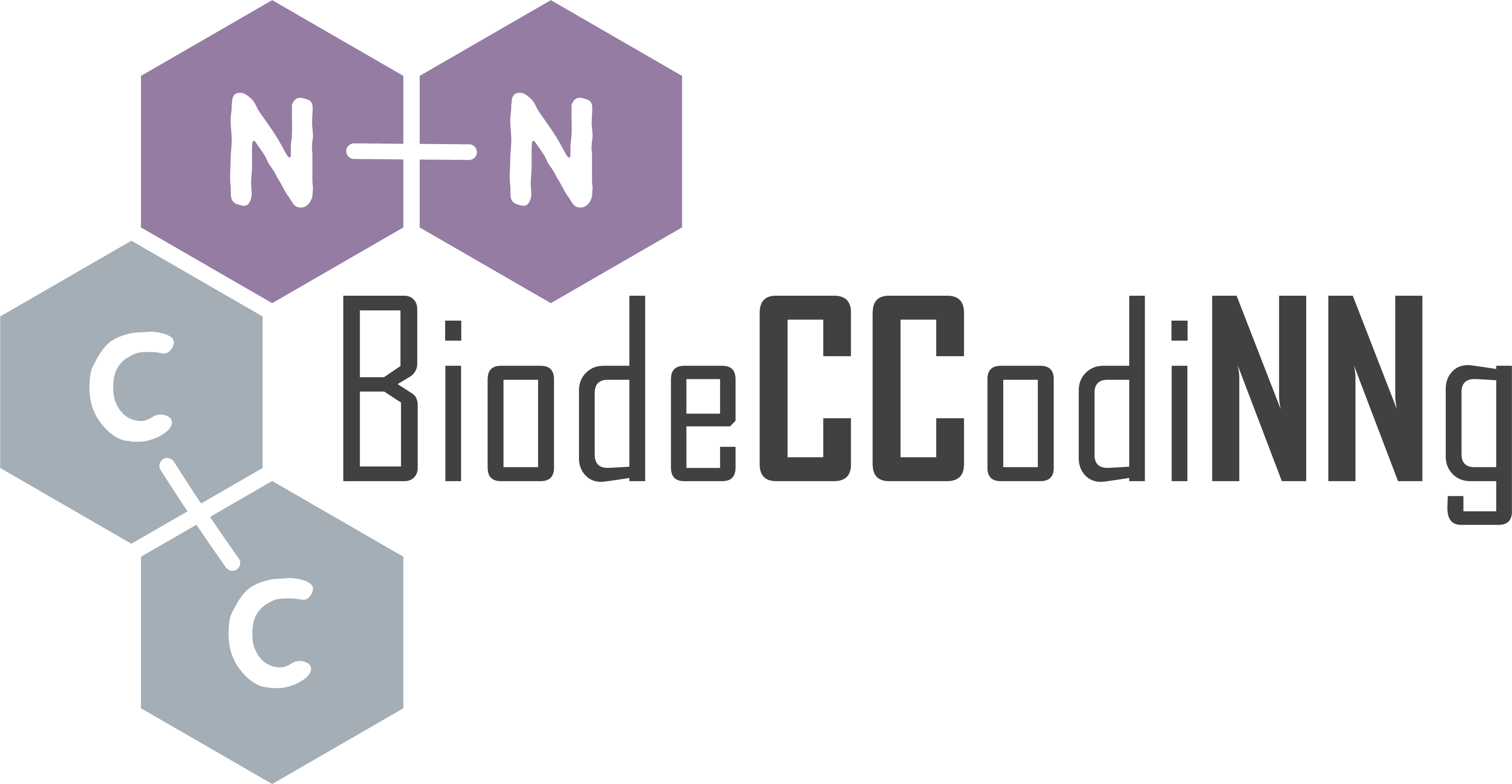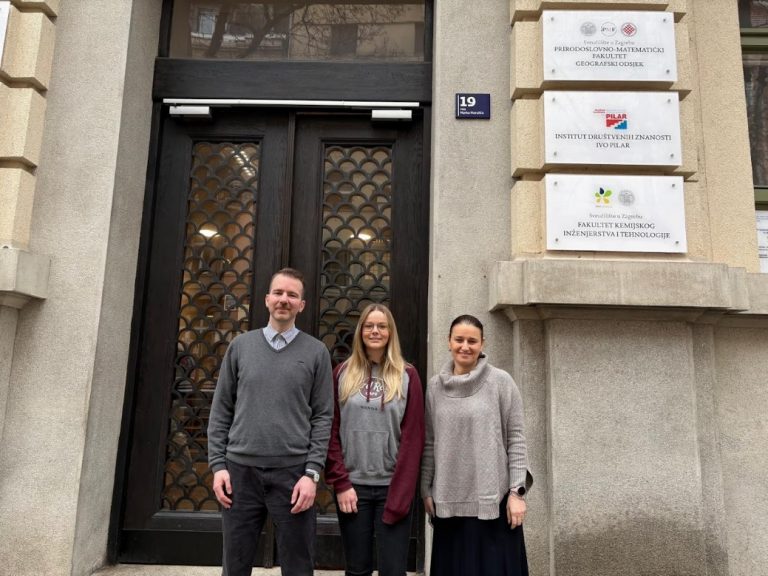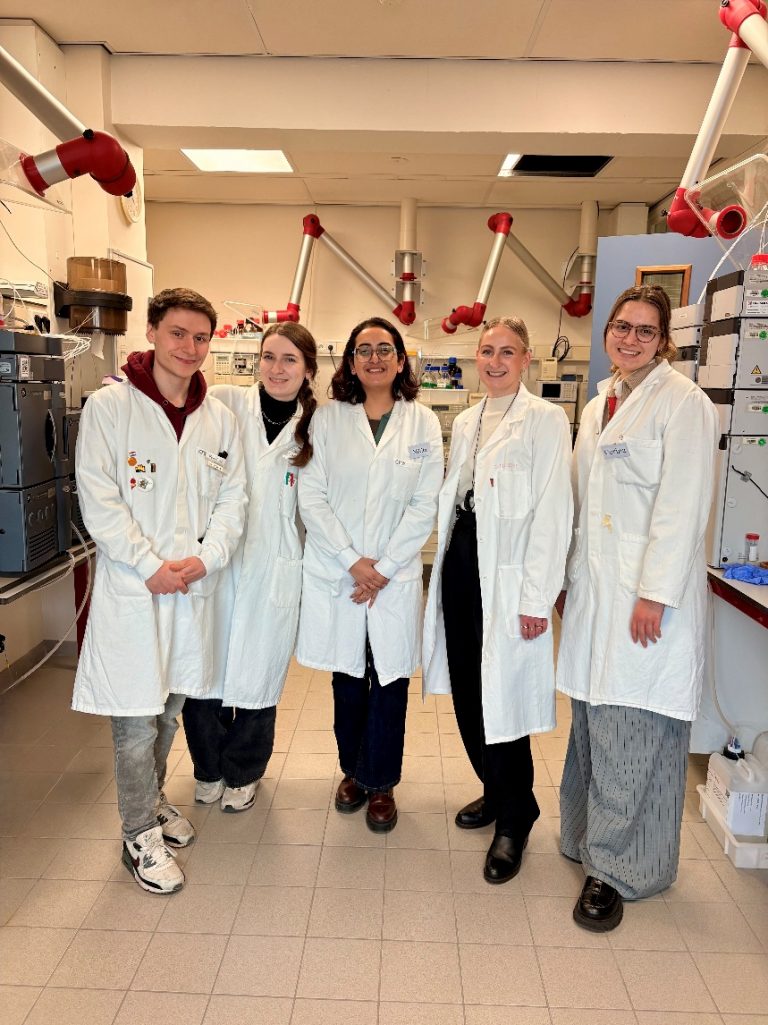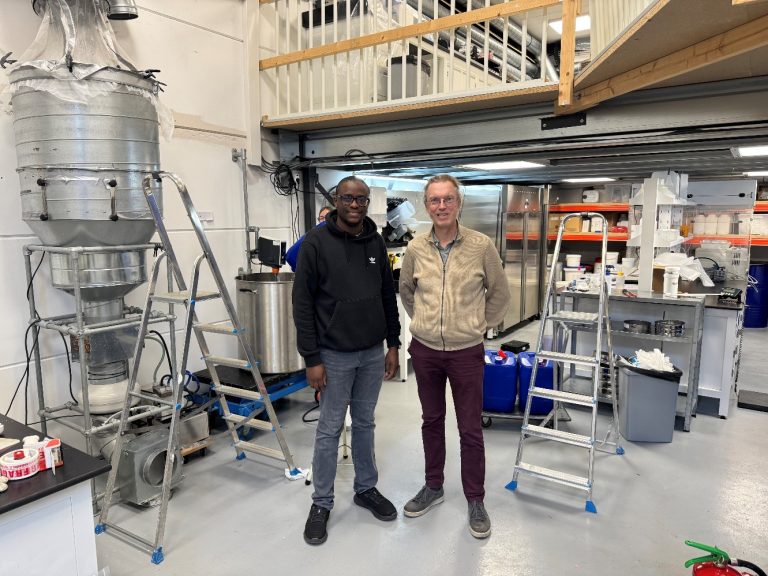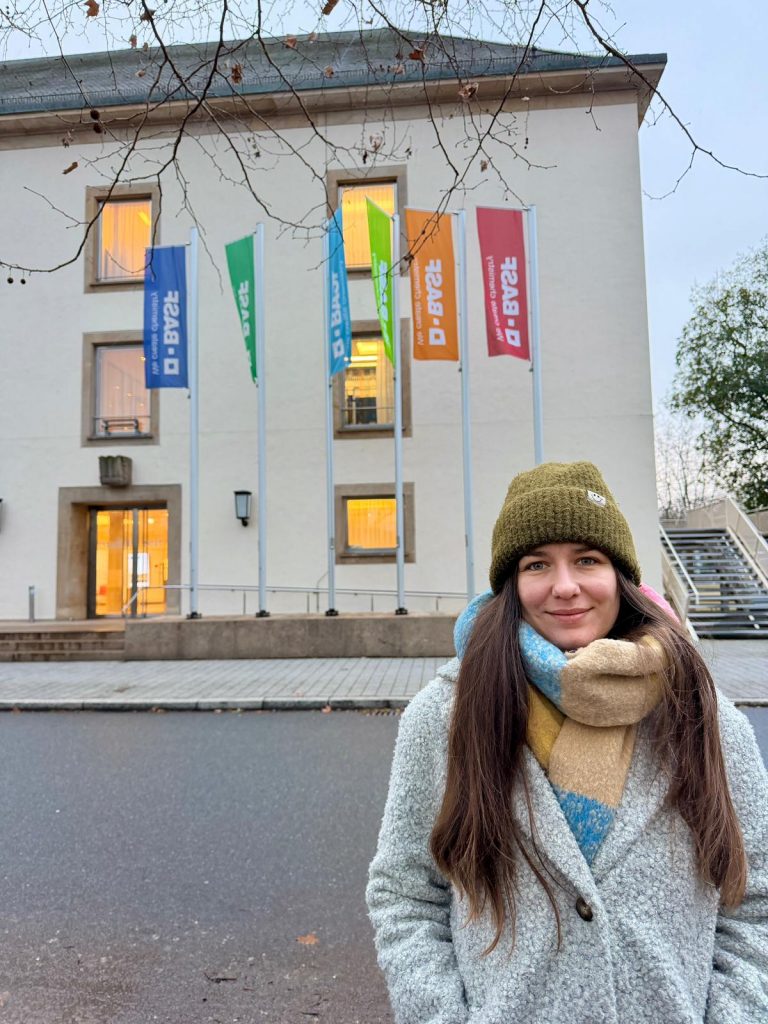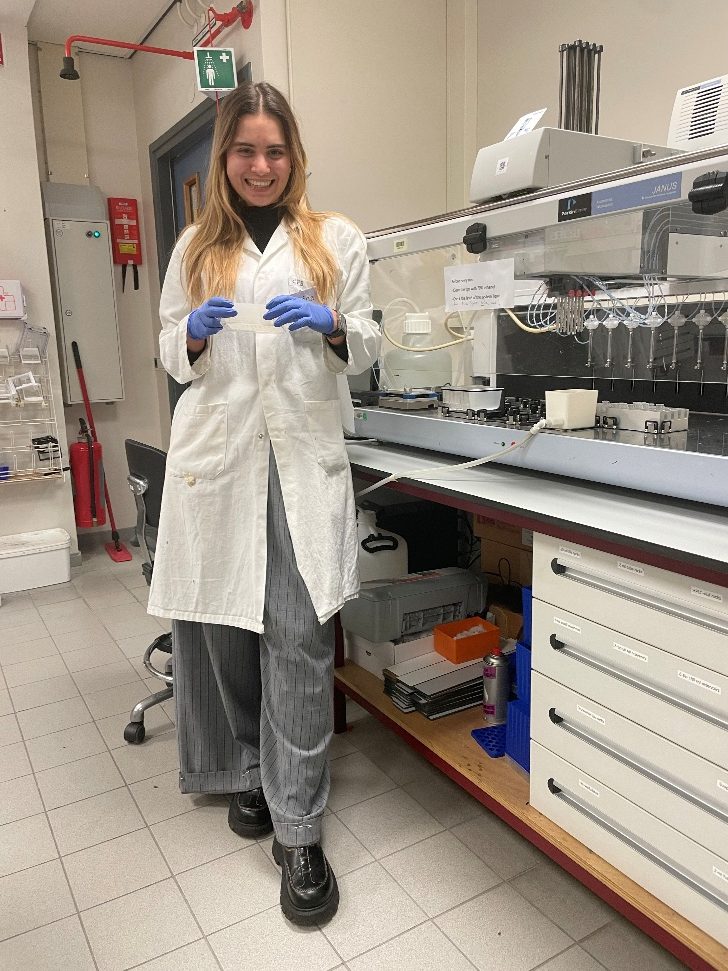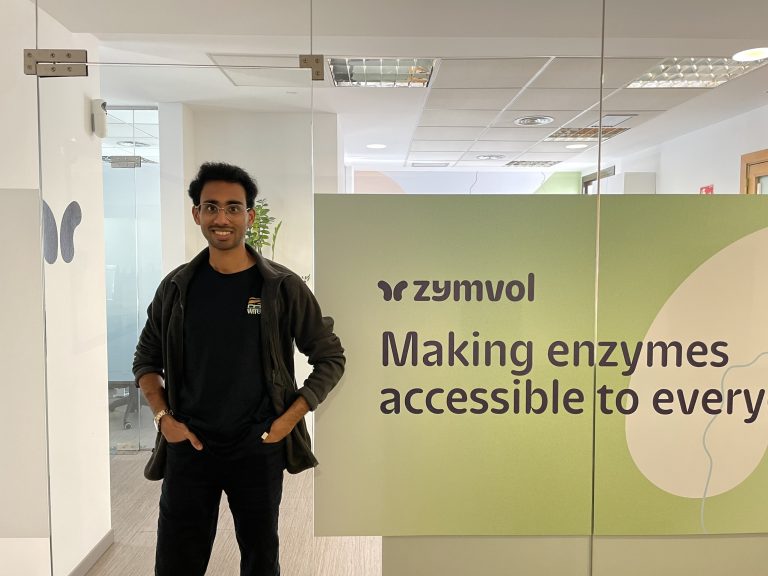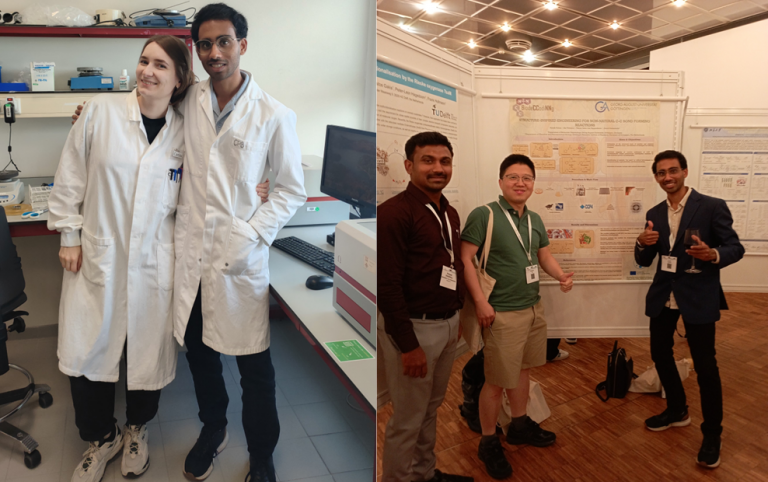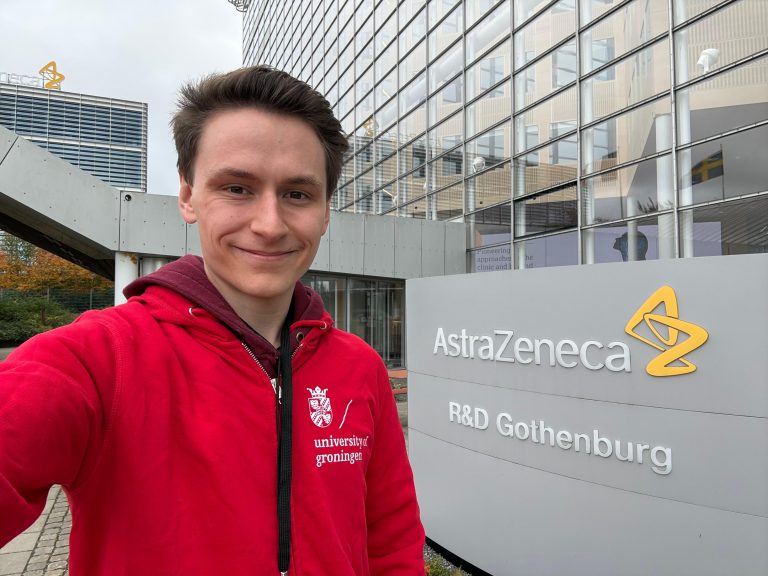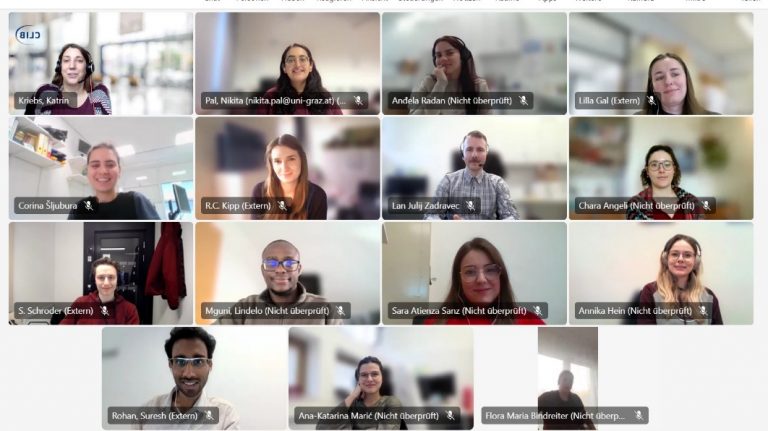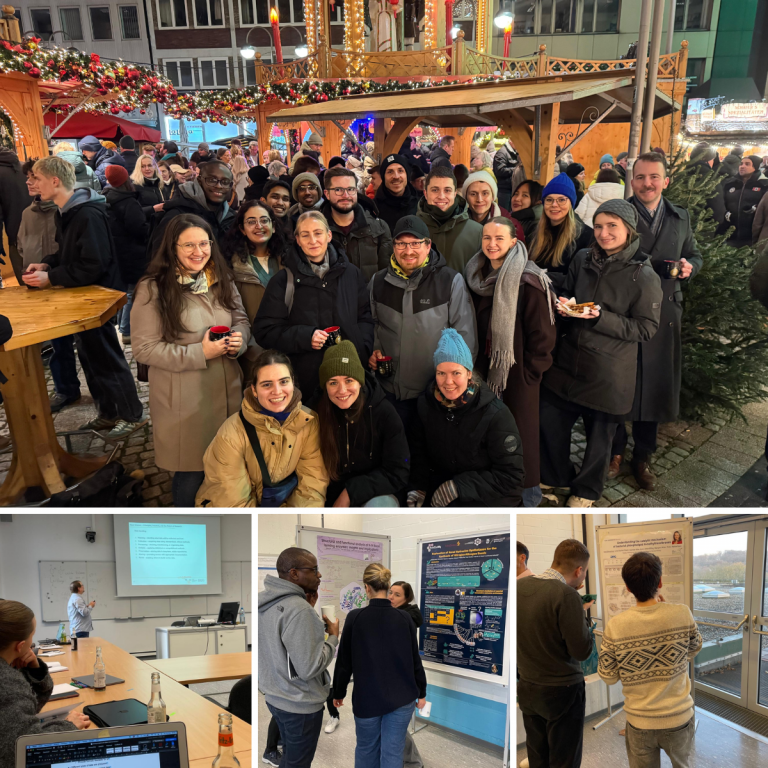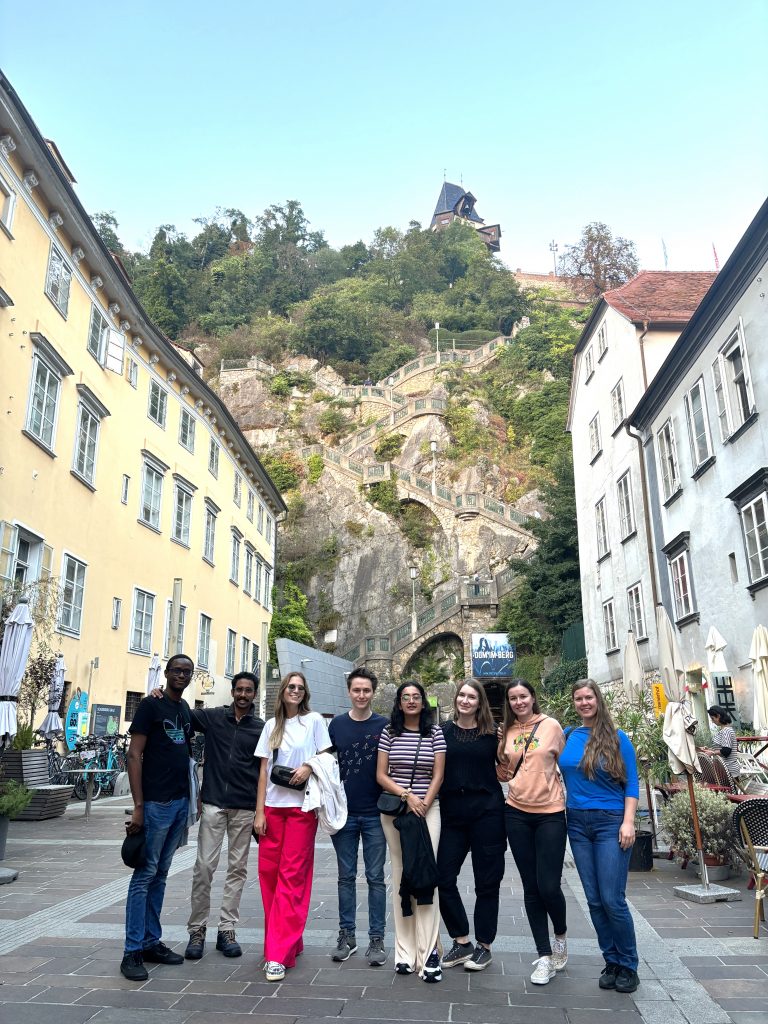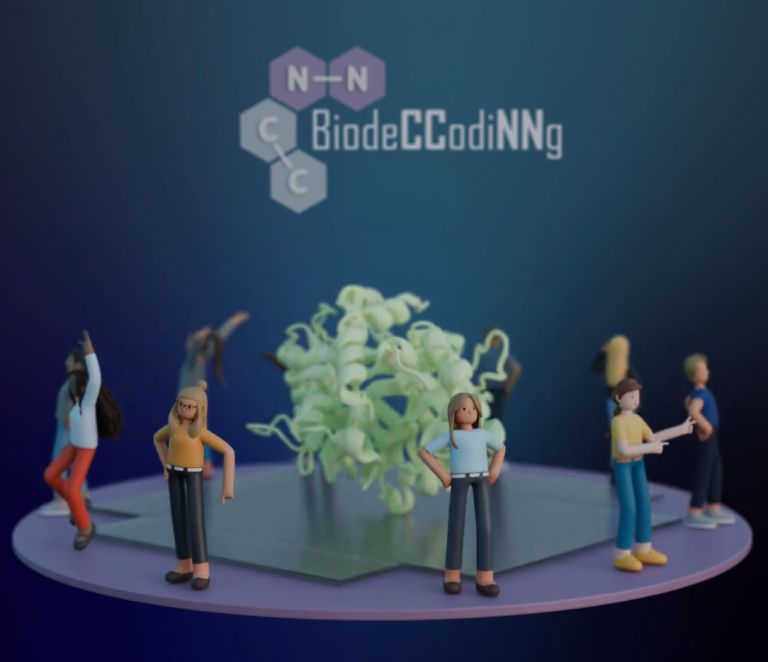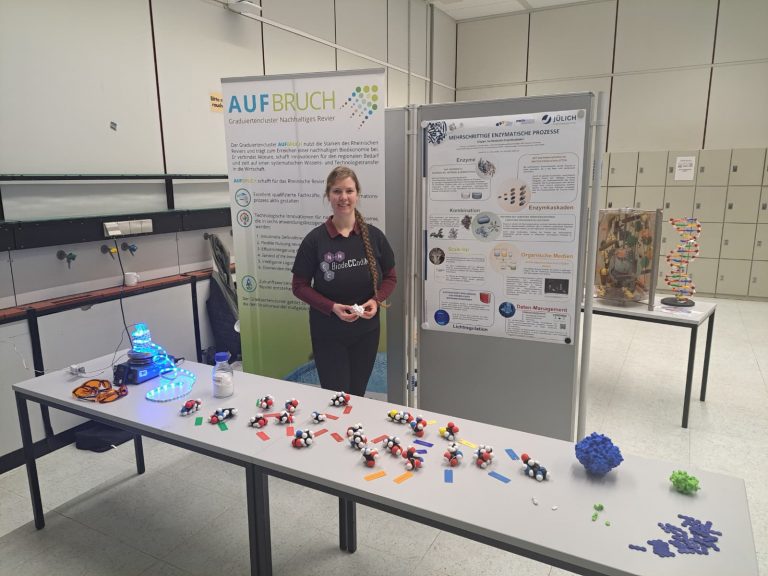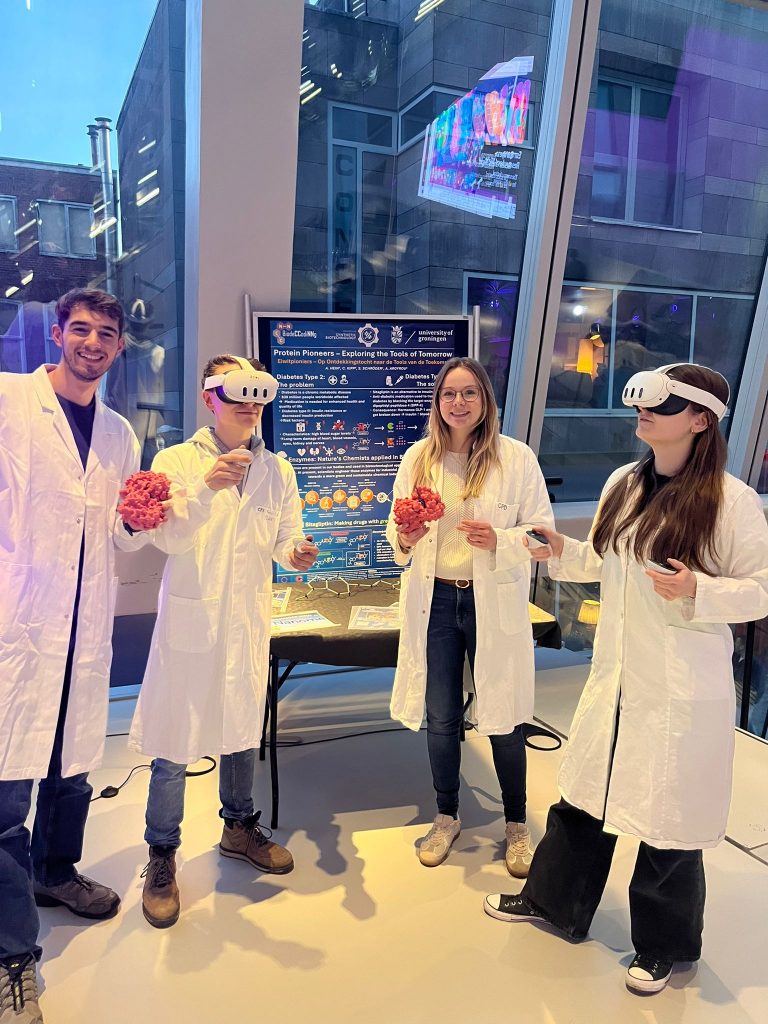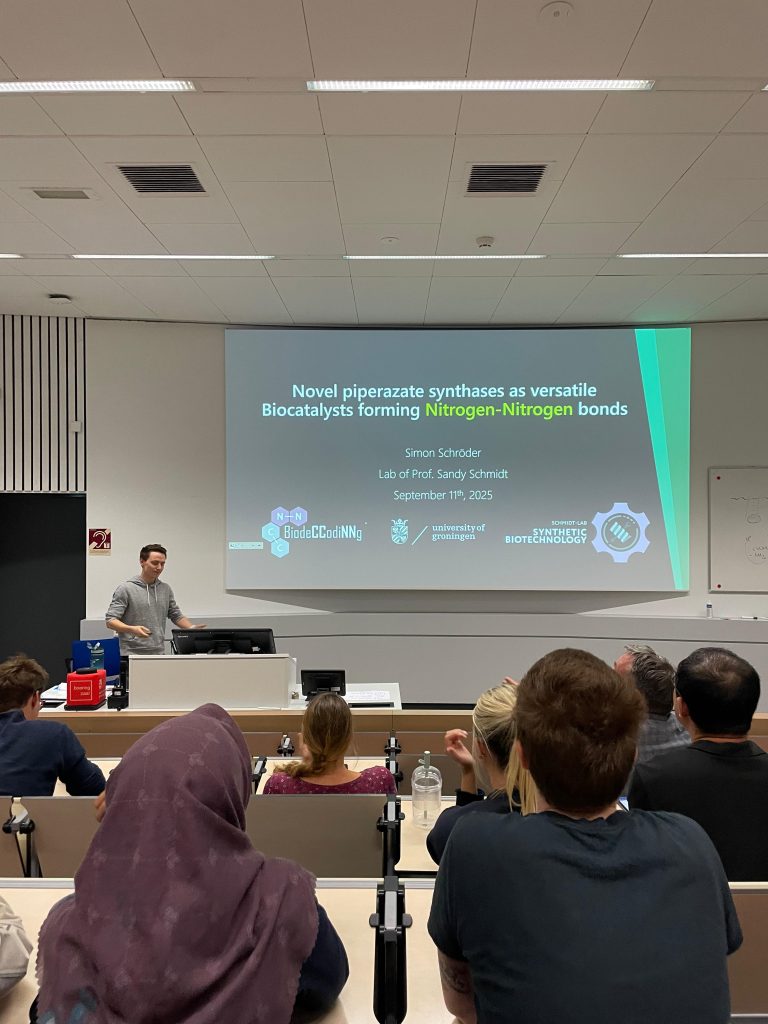Training
Training Europe’s next visionaries for a sustainable future
We are committed to training brilliant young scientists dedicated to industrial biocatalysis.
The main goal of the BiodeCCodiNNg doctoral network is to train and educate Europe’s next 10 visionaries for a sustainable future on cutting-edge enzyme technology centered around N-N and C-C bond formations, and to tackle technology gaps, practical challenges, as well as to exploit synthetic opportunities with huge innovation potential. The network is established by world-leading experts from European academic institutions and industrial partners that will together implement the training agenda. This setting provides strong interdisciplinary co-supervision and intersectoral exposure in secondments to the doctoral candidates and bridges intersectoral and multidisciplinary boundaries across training in drug discovery, enzyme catalysis, and process development.
All our doctoral candidates (DCs) will receive individual and network-wide training. In addition to the network-wide training, each DC will be able to plan and choose “hands-on” training on technologies and science courses that fit their specific needs along with the network-wide training events. Moreover, DCs will work in at least two different working environments, both academic and non-academic.
Our training goals:
(1) to enhance the attractiveness of DCs’ careers in front-line academic and industrial biocatalytic research
(2) to deliver DCs skills in state-of-the-art techniques and methods as well as an entrepreneurial/innovation mind-set
(3) to provide researchers with the best transferable skills in the field
(4) to create an active, long-term network of young researchers
(5) to cascade expertise and spread best practice throughout Europe by personnel exchange.
BiodeCCodiNNg Training Schools
We have planned & successfully conducted a series of events designed for all DCs involved in BiodeCCodiNNg. These events provided the perfect multi-disciplinary and inter-sectoral environment for network-wide participants, as well as creating strong bonds amongst the network that shall last well beyond the project duration. These training schools foster the dissemination of research results, implement strong networking structures and increase exchange of expertises between academia and industry. Moreover, these events are complemented with Training Schools for DCs to learn novel techniques and research tools, needed to convert ideas to innovations, while scouting for industrial implementation possibilities.
We have planned & conducted 6 workshops, subdivided into scientific schools and transferable skills workshops, to teach knowledge by supervisors, DCs, partner organisations and external teachers, covering scientific and transferable skills. A particular concern of BiodeCCodiNng is training on gender awareness & diversity, scientific leadership, innovation & entrepreneurship, open science & science communication, and out-of-the-box thinking to provide the DCs with required competences to prepare them to get decision-making positions. In addition, our DCs are getting the chance to visit the research facilities of our industrial partners and to discuss with experts from industry the usefulness of the developed concepts within BiodeCCodiNNg.
A special highlight in BiodeCCodiNNg’s training was the industrial immersion workshop organized by the world-leading pharmaceutical company AstraZeneca, introducing the DCs to key potential applications of NN- and CCzymes in industry, ranging from biocatalytic synthesis of APIs to drug discovery towards novel drugs. Dedicated lectures were supported by a brainstorming for potential processes employing NN- and CCzymes. The latter will particularly emphasize on critical feedback on the industrial usefulness of the developed enzymes, and, most importantly, on formulating strategies to overcome possible limitations for up-scaling.
In our last outreach event, our DCs will present their latest results harnessing the dissemination and communication skills they will have acquired during the trainings. This conference will be will be jointly organized by DCs as a satellite to the NextGenBiocat symposium 2026 in Munich, Germany on June 12th 2026 to increase the dissemination of their results.
Local training
Our project is set to strengthen the technical skills of our DCs to ensure they can successfully execute their individual research projects. Our multidisciplinary activities planned for this purpose will serve trainees to obtain ECTS towards their PhD degree.
Four institutions involved in our project organized lab courses to instruct DCs in core technologies and state-of-the art instrumentation. These sessions lasted up to one week each and combined theoretical lectures with intensive practical training. This includes our enzyme catalysis school in Graz, the process engineering school in Zagreb and a communication & open science workshop in Bochum, co-organised by the University of Göttingen.
Some of our host institutions offer additional local training on scientific and transferable skills. DCs are following theoretical/seminar courses (e.g., scientific integrity, English writing literature seminars) to complement the structured training program. These courses deliver the knowledge and skills necessary for the successful execution of the DCs’ individual research projects and to obtain ECTS for their PhD degree.
External training
Our DCs will participate in at least two international scientific events that are relevant in the field of biocatalysis. Moreover, our researchers will jointly organise one Final International Conference (June 12th, 2026) in collaboration with their supervisors, inviting for these occasions external leading scientists to provide lectures and discuss the project’s results.
Communication & Open Science training
BiodeCCodiNNg is fully committed to disseminate the most relevant findings of our project to a broad audience that is not limited to the scientific community, materializing their social impact, and encouraging further implementation of the project outcomes. We have integrated communication and outreach activities in the instruction programmes of DCs, which are guided by professional science communicators.
With the communication & open science training, researchers are learning how to effectively present scientific data and ideas appropriate for scientific publishing, as well as how to translate complex scientific topics into publicly understandable narratives, and to develop a more responsible form of communication. Researchers are learning how to handle FAIR data management and how to implement best practices for data short-and long-term storage, and how data can be made available to third parties.
